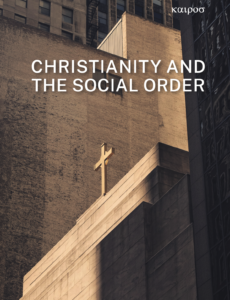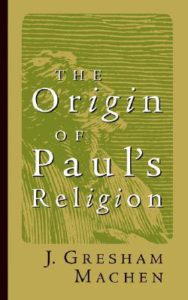
I. The eternal backdrop and significance of Christmas
A. Theological Treasures in Christmas Carols
To many, Christmas marks the birth of Jesus Christ in Bethlehem. Yet its deeper significance lies in the mystery that the eternal Son who was pre-existent with the Father from eternity entered human history as a newborn child.1“The term pre-existence refers to the idea of an entity having a heavenly existence before its earthly, historical or eschatological manifestation, sometimes even before the creation of the world.” [DPL, p. 743.] Pre-existence is the logical implication of the more scriptural term σὰρξ ἐγένετο (sarx egeneto), became flesh “incarnated”. This theological truth elevates Christmas beyond a sentimental birthday celebration, transforming it into a cosmic event of unparalleled depth and consequence.
Without the doctrine of Christ’s pre-existence, Christmas risks being reduced to a seasonal myth, akin to pagan narratives of cyclical dying-and-rising gods tied to nature’s rhythms. In contrast, the incarnation is a singular, unrepeatable act: the eternal Word becoming flesh. This truth is richly embedded in the lyrics of traditional Christmas carols, which often carry profound theological insights beneath their melodious tunes.
1) Hark! The Herald Angels Sing
This carol is particularly rich in theology concerning Christ’s divine nature and pre-existence.
a) Christ, by highest heav’n adored; Christ the everlasting Lord! Come, Desire of Nations, come, Fix in us thy humble home.
The phrase “everlasting Lord” anchors the incarnation in eternity. The invocation to “come” presupposes a divine being who already exists and is now entering creation
b) Veiled in flesh the Godhead see; Hail the incarnate Deity! Pleased as man with men to dwell, Jesus, our Immanuel.
This stanza offers one of the clearest affirmations of the incarnation. The “Godhead” voluntarily veils His eternal glory by assuming finite human nature (“flesh”) to dwell among us.
2) O Come, All Ye Faithful
“God of God, Light of Light, Lo! he abhors not the Virgin’s womb; Very God, Begotten, not created.”
These lines echo the Nicene Creed: “God of God, Light of Light” and “Very God, Begotten, not created” are definitive statements of Christ’s eternal, divine nature. The carol resists any notion of Christ as a created being. Instead, it proclaims that Christ who is eternally “begotten” of the Father entered the world through the “Virgin’s womb.”
3) O Come, O Come, Emmanuel
Though primarily about messianic longing, it includes a line revealing a pre-temporal identity:
“O come, Thou Wisdom from on high, Who orderest all things mightily.”
“Emmanuel” means “God with us.” The one who “orders all things” is the divine Logos – pre-existent, sovereign, and active in creation. The carol thus links messianic hope with cosmic authority.
Christmas carols, often sung with simplicity or sentimentality, are in fact theological treasures that encapsulate the profound doctrines of the Christian faith. Continue reading “Cosmos to Christmas Cradle: From Pre-existent to Incarnate Christ”
 I. Doubts About the Authenticity of Paul’s Teachings
I. Doubts About the Authenticity of Paul’s Teachings


